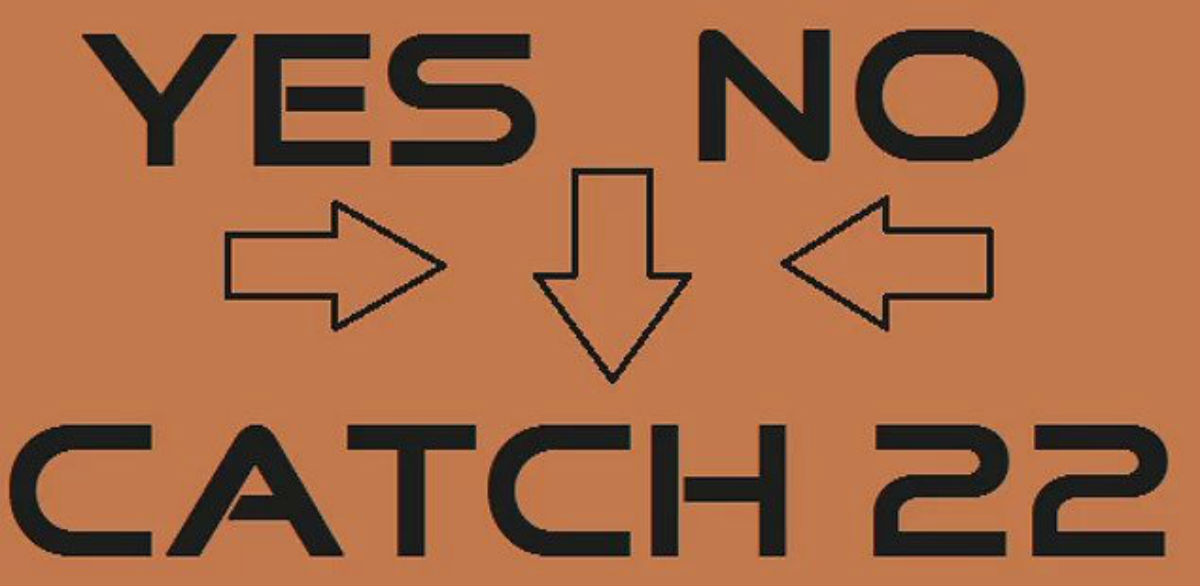
Dementia’s Catch-22
Should we honour advanced directives which instruct carers to dispatch people with dementia?
People who fear living with dementia face a Catch-22 situation. When they are competent, they can write an advance directive asking for assistance in dying when they become deeply demented. But in the depths of their dementia, they can no longer confirm their intention to be killed and they might even refuse. A classic Catch-22.
A special feature in The Hastings Center Report explores this dilemma. Basically the ethical question revolves around whether nutrition and hydration is personal care or medical treatment. If the former, they cannot be denied as a matter of basic human dignity, just as we would not allow a comatose patient to lie in his own excrement. If the latter, they can be withdrawn because otherwise they would constitute illicit battery.
Norman L. Cantor, a retired Rutgers law professor, argues that it is ethical to withdraw nutrition and hydration from a demented patient whose advance directive specifies this course of action when he is no longer capable of making autonomous decisions.
… a basic precept of precedent autonomy is that a person's values and principles—whether grounded on religion, altruistic concern for others, or a conception of intolerable dignity—are entitled to implementation.
If they have not thought about it carefully, most people would probably agree with this approach. However, three articles take issue with Cantor’s presentation of the problem.
Elizabeth Chuang and Lauren Flicker, of Albert Einstein College of Medicine, contend that denying food and water is an affront to human dignity:
Withholding food and water from an incompetent patient who complains of thirst and hunger is an affront to basic dignity that is not adequately ameliorated by sedation. It represents inhumane treatment of the vulnerable person. Thirst is a particularly strong basic human drive that is difficult to palliate. The dying process can take days or as long as two weeks, during which time a caregiver under Cantor's model would continually have to refuse the patient's demands for water.
Rebecca Dresser, of Washington University Law School, takes a slightly different angle. She points out that the perceptions and preferences of people who are demented change. They may be content with their situation, no matter how bleak it may seem to observers:
even well‐informed individuals can make misguided choices because dementia is a “transformative experience” that affects people in ways that they cannot anticipate. As a result, they can only guess what they might want and need as a person with dementia.
Finally, Daniel P. Sulmasy, of Georgetown University, counters that suicide inevitably has an effect upon others in society:
Norm, if we sanction your starving yourself to death so that you don't suffer Alzheimers disease, then we throw a question smack in the face of countless disabled persons everywhere: why are you still burdening yourself (and us) with your life, which is similarly unworthy of life?
Creative commons
https://www.bioedge.org/images/2008images/FB_catch-22_2.jpg
advance directives
assisted suicide
dementia
euthanasia
